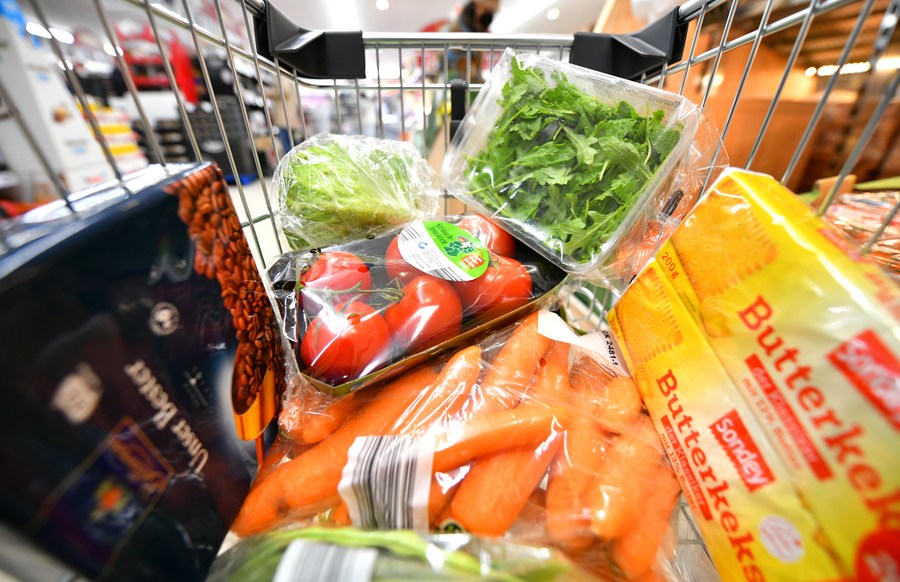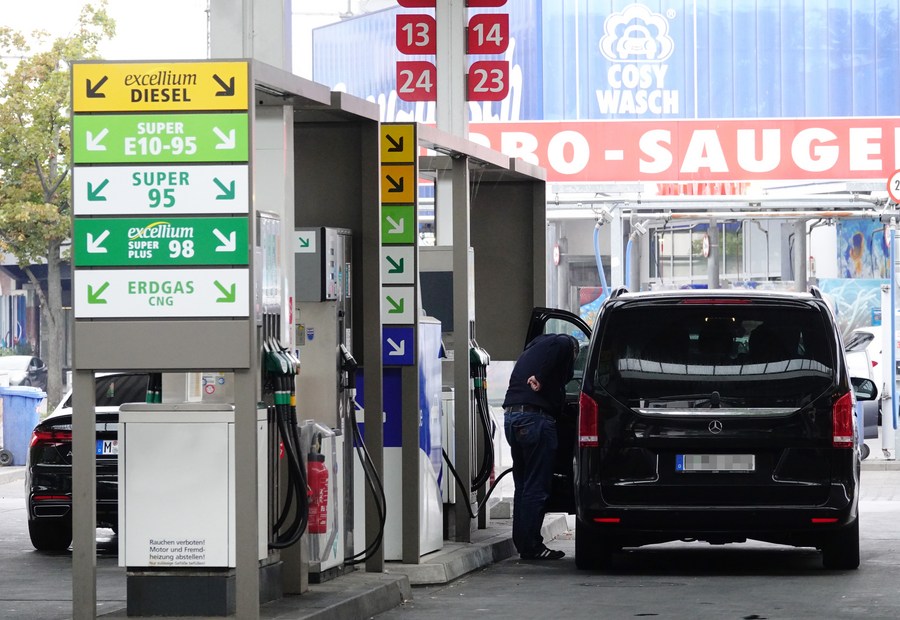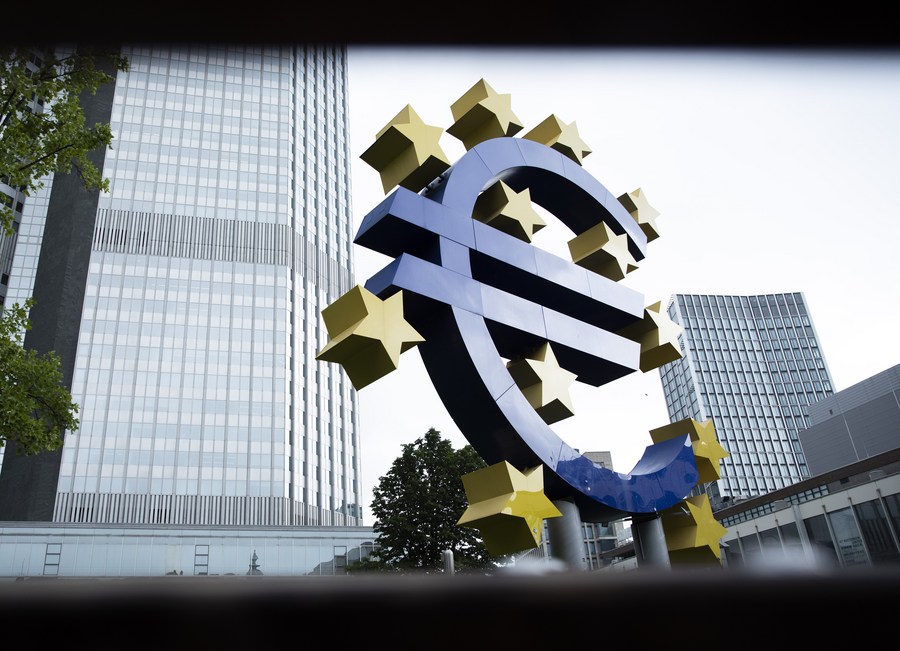Inflationary pressure in Germany remains high despite slowdown

This photo taken on Nov. 11, 2022 shows goods in a shopping trolley at a supermarket in Berlin, capital of Germany. (Xinhua/Ren Pengfei)
Germany's October CPI slowed to the lowest level in more than two years, though its inflation rate "remains high" compared to medium and long-term figures, Destatis said.
BERLIN, Nov. 8 (Xinhua) -- Consumer price inflation in Germany slowed further to 3.8 percent in October, the lowest level in more than two years, the Federal Statistical Office (Destatis) said on Wednesday.
Compared to medium and long-term figures, however, the German inflation rate "remains high," Destatis President Ruth Brand said in a statement. "In particular, consumers are still feeling the higher food and energy prices."
Despite weakening further to 6.1 percent, food prices remained the main driver of inflation in Europe's largest economy. According to Destatis, sugar and other confectionery as well as bread and cereal products saw particularly sharp price increases of more than 10 percent.

A man fuels a vehicle up at a gas station in Berlin, Germany, Sept. 8, 2022. (Xinhua/Ren Pengfei)
Energy prices saw their first drop in almost three years in October, falling by 3.2 percent due to sharp declines in natural gas and heating oil prices. Electricity, however, remained 4.7 percent more expensive than a year ago.
In 2024, electricity prices are expected to be driven up by subsidies for the expansion of the German energy grids. According to the comparison company Verivox, grid fees for electricity will rise by 11 percent year-on-year to a new record high at the turn of the year.
Meanwhile, recovery in consumer sentiment remains "a long way off," according to the Nuremberg Institute for Market Decisions (NIM). Due to weak purchasing power, "private consumption will not be able to support the economy this year," NIM expert Rolf Buerkl said in late October.
In the eurozone, consumer prices keep normalizing faster than in Germany. According to provisional figures by Eurostat, the statistical office of the European Union, inflation there slowed to 2.9 percent in October. However, Eurostat based its calculations on the assumption that German inflation would fall more sharply.

This photo taken on July 27, 2023 shows the Euro sign in Frankfurt, Germany. The European Central Bank (ECB) raised its key interest rates by 25 basis points (bps) on Thursday to curb inflation. (Xinhua/Zhang Fan)
In order to push inflation back below its 2 percent target, the European Central Bank (ECB) raised its key interest rate to 4.5 percent before recently deciding to pause. However, further hikes do not seem out of the question, according to insiders.
"We must remain vigilant," Austria's central bank governor and ECB Governing Council member Robert Holzmann warned earlier this week.
Photos
Related Stories
Copyright © 2023 People's Daily Online. All Rights Reserved.









